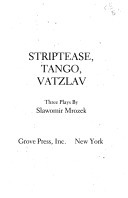What do you think?
Rate this book


92 pages, Paperback
First published January 1, 1981
I’m not afraid of the truth. A fish used to be a fish, a poor man used to be a poor man. When you ate a fish, the poor man stood and watched you. Now it’s all mixed up. The fish is stilll a fish, but the poor man is a bone and he sticks in your throat.